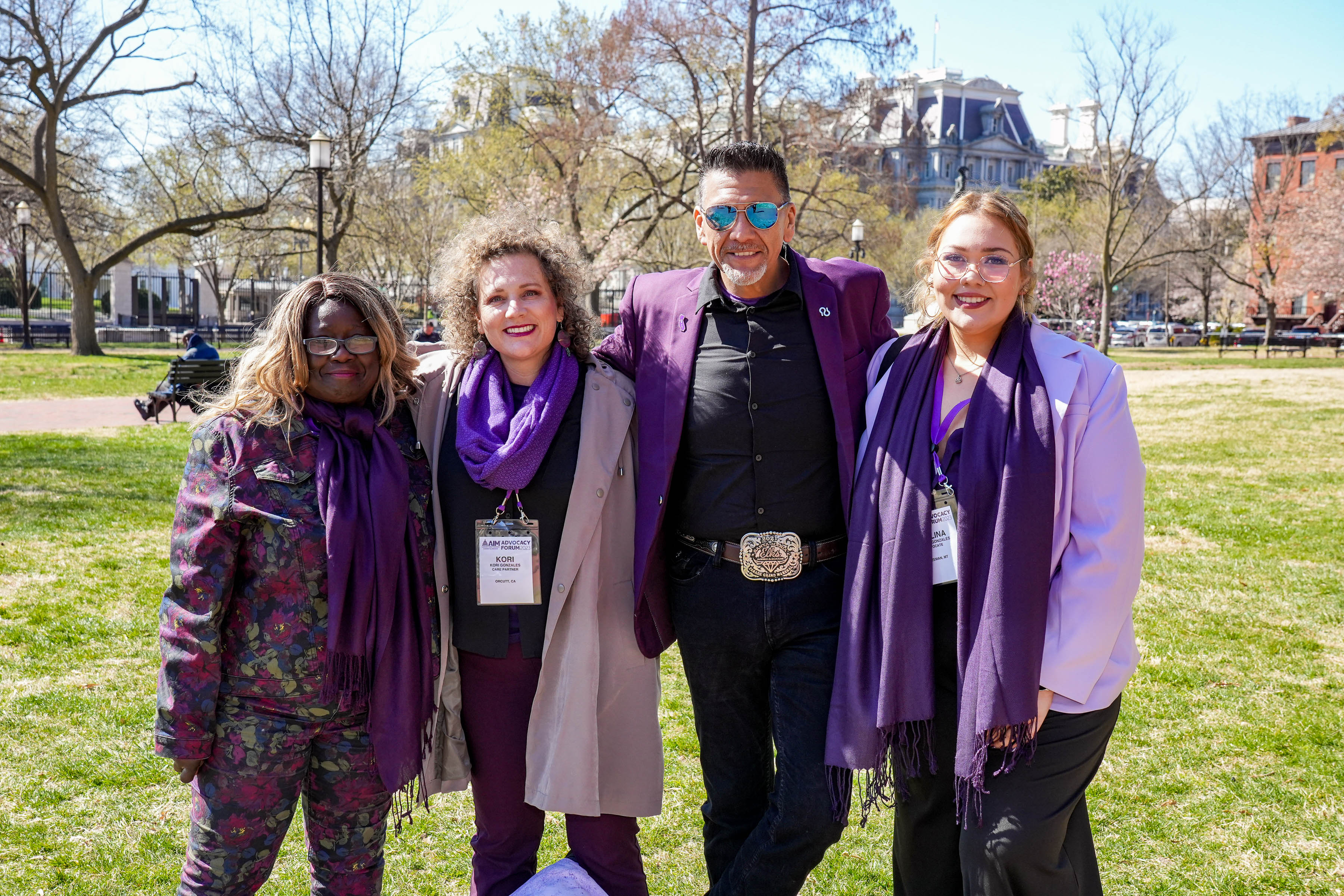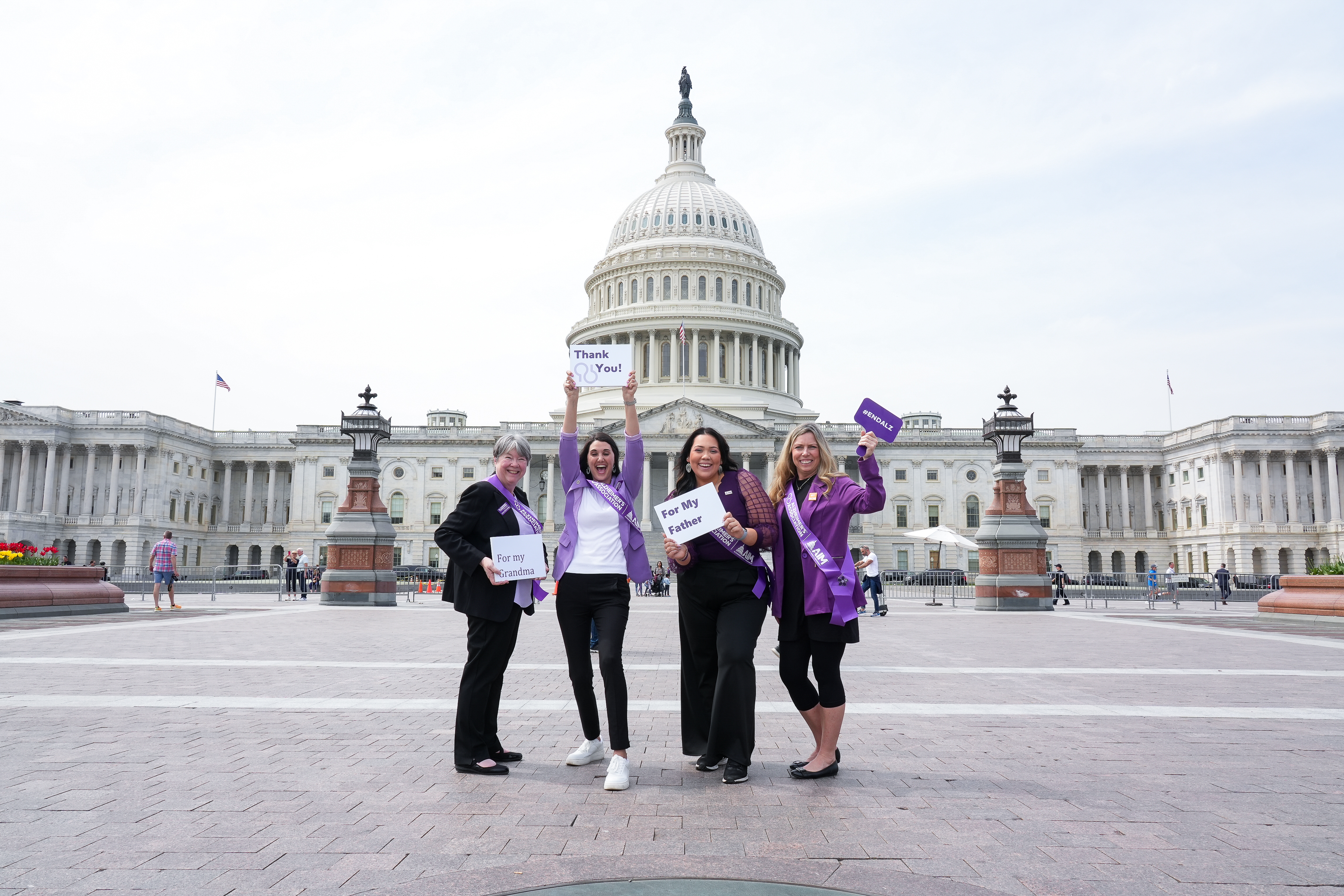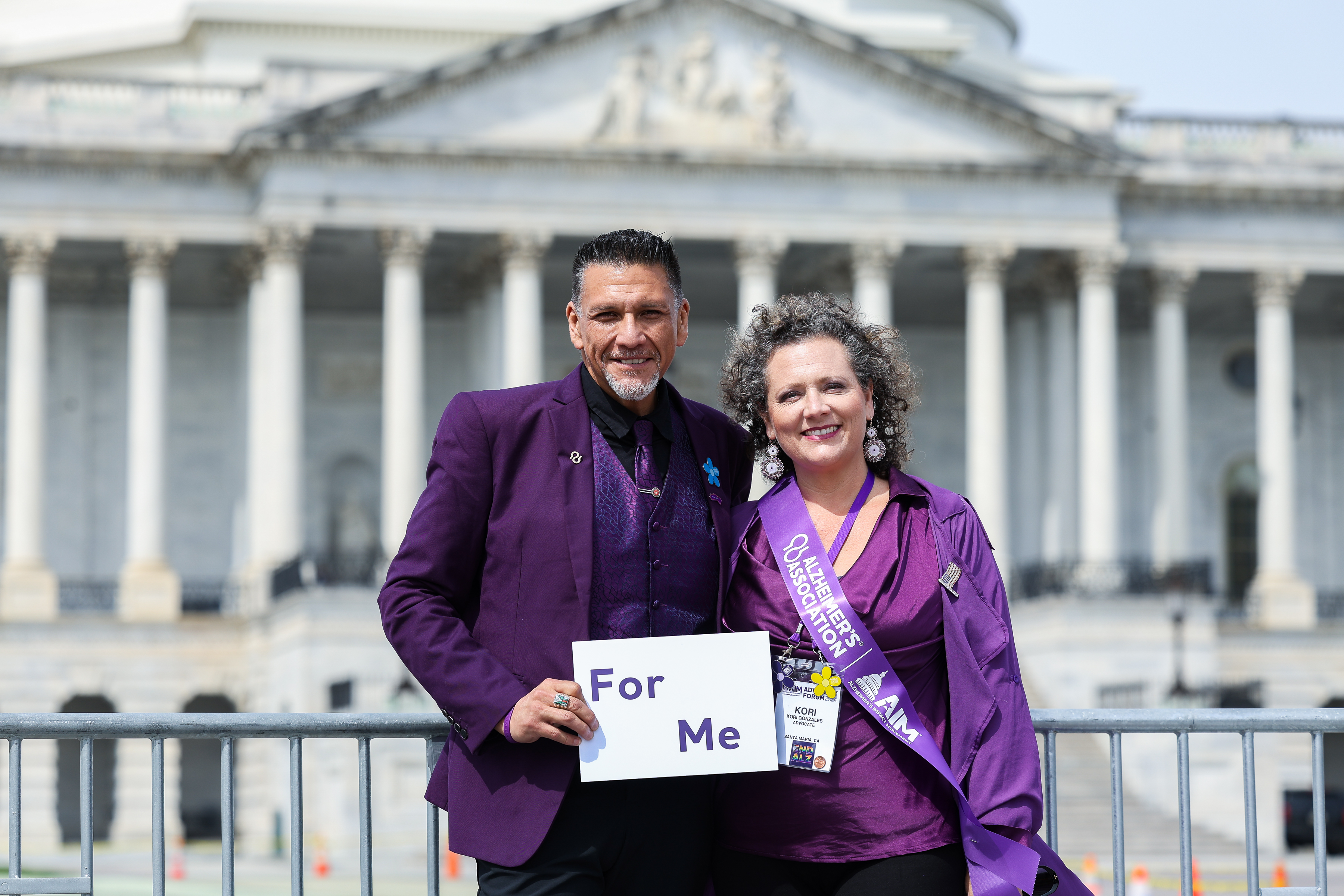Each month, we’re featuring an advocate who engages with policymakers to ensure priorities that improve the lives of people impacted by Alzheimer’s and all other dementia remain top-of-mind in Congress.
Born and raised in Santa Maria, California, Molina Gonzales grew up seeing her dad Tony and mom Kori as active members of the community. Tony had a 25-year career in radio broadcasting, and the family had been involved with cancer advocacy since Molina was eight years old. Very close to her dad, Molina was often identified as “Tony’s daughter” around town. In 2021, Tony was diagnosed with mild cognitive impairment (MCI) at age 47. Molina was 17 years old.
Interning with her dad at the time, Molina was one of the first to start seeing Tony’s symptoms. “There were emails that he didn’t read that I had sent him three times,” said Molina. “Or he had forgotten something that we had to bring to an event, and so I would have to run and get it.”
“I had a really hard time after my dad was diagnosed, just processing it all,” said Molina. “I am the youngest child. I had a hard time specifically with the thought of becoming an adult and my dad not being there.”
When it came time to make a decision on what she would do after graduating high school, Molina originally told her parents she wasn’t going to leave for college. She was going to stay at home to go to the junior college in Santa Maria.
“However, my dad had a conversation with me,” said Molina. “He said, “My worst fear, Mo, is for you to stop living your life just because of what’s going on. We don’t know what’s going on. I don’t want you to pause your entire life for me.”
Molina decided to attend Montana State University in Bozeman, Montana. When she first arrived on campus after her dad’s diagnosis, Molina felt isolated and alone. Now she wants to get her college more involved in the fight against Alzheimer’s and help reach others impacted by Alzheimer’s and other dementia.
“I know there has to be more people at that college that have parents or grandparents that are going through it,” said Molina. “It’s such a college town, and the community in itself supports the school so much…I want everyone to know [about the Alzheimer’s Association] so that no one at this school feels the way that I did.”

Molina and her family first became involved with the Alzheimer’s Association shortly after Tony’s diagnosis. In 2023, Molina and her parents attended the AIM Advocacy Forum, and Tony spoke at the Rally for Access in front of the White House.
“I was just going to observe,” said Molina. “But I fell in love [with advocacy]. My parents sat down with me and said, ‘Okay, this is the most excited we’ve seen you in months.’”
“[After his diagnosis], I had gone into a really bad depression, and to be honest, the Alzheimer’s Association was a very big part of what pulled me out,” said Molina. “I didn’t know how to process anything. When I went to [the Advocacy Forum], I finally felt understood. I felt like I wasn’t the only one …. I felt like I had a place where I could talk to people and a support system, because a lot of my friends didn’t understand it.”

Molina returned to Bozeman motivated to do more. She contacted her local Alzheimer’s Association chapter and said she’d help in any way they needed.
Since then, Molina has continued juggling school, work, and volunteering with the Alzheimer’s Association. Last year, Molina emceed the local Walk to End Alzheimer’s and shared her story, and this year Molina will serve as the executive chairman.

When it comes to helping her friends understand dementia and how her dad and their family navigate it, Molina explains that her dad might forget things but he is still just a normal person.
“As my dad says, it’s all about living well in his community. When he visits I just make adjustments as if he had any other type of disease. And that’s how I’ll live if I get to that point. We’ll just keep on moving and grooving and rolling with the punches.”
Since becoming involved with the Alzheimer’s Association, Molina has made friends and keeps in touch with them through social media.
“So many of them are following my college journey and are like, ‘Keep going. You’re doing great!’ It really feels like a bigger family,” said Molina. I’ve always loved the sense of a small community because I grew up in a small community. It makes it feel like home. It can be wherever; it’s not a physical place. It’s a community that moves with me, because it's connecting me to home and connecting me to my parents.”
Learn how you can get involved with the Alzheimer’s Association and AIM community and become an advocate like Molina.
